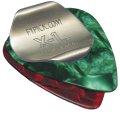 I’ve let quite a pile of review books accumulate on my desk again as well as a couple of non-book oddities, so here’s a quick round-up.
I’ve let quite a pile of review books accumulate on my desk again as well as a couple of non-book oddities, so here’s a quick round-up.
First up is the Instant Egghead Guide to the Mind by Emily Anthes published by Scientific American. The first in a series, Anthes breaks down the overwhelming topic of mind into bite-sized chunks. She covers the basics of how the various parts of the brain work individually to what happens when they come together. “We go all the way from how does a neuron work and what is a neuron to what is consciousness, which is probably one of the biggest ideas that’s out there,” she says.
Next is Steven Holzner (author of Physics for Dummies) who has put together a more focused follow-up Quantum Physics for Dummies. The subject is never going to be one for any kind of dummy to understand, and Holzner, by necessity, presents a very mathematical treatment. I suspect that the lay reader hoping for a quick explanation of Young’s slits experiment, quantum tunnelling, or to learn the fate of Schroedinger’s feline friend will be sorely disappointed. This is one for fledgling physics students.
Echoes of Life by Gaines, Eglinton, and Rullkoetter presents a fascinating history of fossils, but not the stony, bony impressions with which we are all familliar, they home in on fossils at the molecular level revealing what ancient chemistry can tell us about life millions of years ago.
Is God a Mathematician? It seems a facile question, but Mario Livio is not concerned with the theistic implications he is hoping to explain why the universe seems to follow mathematical rules. Is the universe intrinsically mathematical or is its mathematical behaviour simply a product of the human mind? Would an alien intelligence use a different system to explain the laws of the universe?
My good friend Scientific American editor Mark Alpert sent me a copy of his novel Final Theory. It’s a gripping, fast-paced thriller hinging on a hypothetical unified theory of the universe left unpublished by Einstein. The theory could be quite literally earth shattering and certainly tips its hat to the unfounded concerns about the Large Hadron Collider. It’s a good read although the explanations of autistic behaviour in one character perhaps unfold the stereotype a little too brashly.
In Sex and War, Malcolm Potts and Thomas Hayden offer a biological solution to humanity’s eternal efforts at self destruction. They suggest that war and terrorism are essentially male aggressive behaviours locked into our primordial biology. Our evolutionary status is not our destiny, they offer, and suggest that empowering women could help the biology of peace win out against the biology of war.
So, what about the hayfever and plectrums? Well, Jenny Liddle sent me a sample of HayMax Pure, which is a non-greasy gel hayfever that sufferers can apply to the edge of their nostrils to prevent the entry of pollen during peak times. It’s the end of March, so I, as a sufferer of allergic rhinitis, should soon have a chance to test the product. I’m sure it’s a more pleasant alternative to smearing on petroleum jelly and may even allow me to cut down on my antihistamine intake this summer, here’s hoping. UPDATE: June, 2010: Now, I’m well into the second season of HayMax use and I can certainly vouch for its benefits. I’m not entirely without symptoms but at this time of year I’d usually be unable to step out doors without suffering.
Finally, Allen Chance sent me a mixed bag of F-1 ergonomic guitar picks to try out. From his description of the benefits I had high hopes of many happy hours strumming and plucking. In one sense they’re nice and bright sounding, but I’m not convinced of their ergonomic value. It’s one’s fretting fingers that need the ergonomic reassessment.
Moreover, the picks are designed to prevent them from rotating in your fingers, but, deliberate rotation is crucial to getting different sounds such as scrapes and pinched harmonics, as well as for allowing fast shredding or big power chords. I’m sure some guitarists will find them very useful, but personally, I’ll be sticking to conventional picks and fingerstyle for the time being.